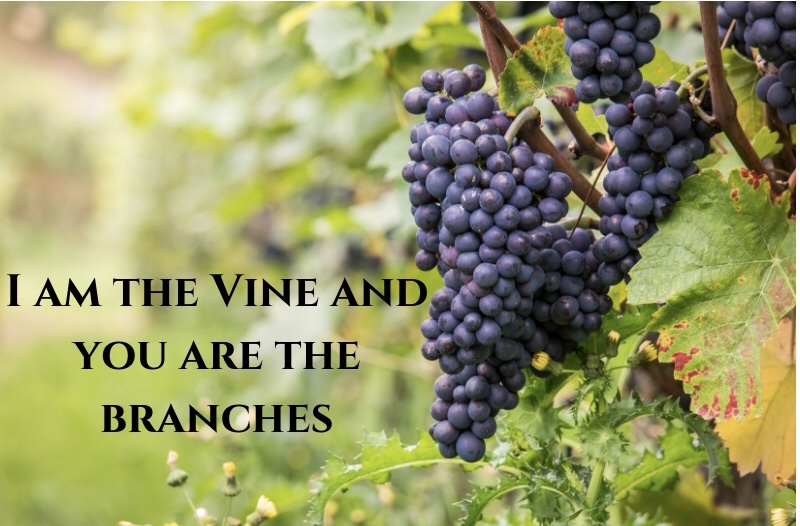Imagine for a moment being 11 years old, and the older boy down the block (the one you admire and wish you were like) sends you a text with a video link of himself and his friends playing soccer. You are surprised and secretly delighted that he would want to share this video with you. Of course, you immediately click the link and revel in watching all the magnificent action of kicks on goal, headers, chest traps, and even a bicycle-kick or two.
Now imagine a year later, he doesn’t just share a video link with you, but he invites you to participate in playing a soccer game with him and his buddies. You are beside yourself with anticipatory endorphins since you’ve been practicing in your backyard day and night so as to gain the skills needed just in case such an opportunity presented itself.
The two of you walk over to your neighborhood park and for two glorious hours you are smack in the midst of all the adrenaline-producing activity – running til your legs feel like gelatin, sweating til the perspiration stings your eyes, and attentively attuning your every move to your teammates’ passing rhythms. And when you’re done, joy bursts forth from every pore for the privilege of participating in this event with da guys: for two fleeting hours, you were one of them!
This simple story illustrates the difference between sharing something versus participating in it, which will help us dive back into the concept of divinization.
Last week, you may remember, we steeped for a bit in spiritualization. Using a cup of tea as our guiding metaphor, we saw how our glorified bodies will be spiritualized when the spirit fully saturates our resurrected bodies like tea fully saturates water. However, this is only the initial step in our heavenly perfection because we are spiritualized in order to be divinized!
Scripturally, we encounter the concept of divinization in 2 Peter 1:3-4: “His divine power has granted to us all thing that pertain to life and godliness, through the knowledge of him who called us to…become partakers in the divine nature.” Divinization likewise surfaces in the liturgy, although the exact term is never used. Instead, during the preparation of the gifts, the priest prays, “By the mystery of this water and wine, may we come to share in the divinity of Christ who humbled himself to share in our humanity.” Additionally, the “Prayer after Communion” prayed aloud by the priest often contains the phrase: “…so you may make us sharers of his divine nature…”
“Partakers of the divine nature…” “share in the divinity of Christ…” “make us sharers of his divine nature…” – these are the different ways in English the Church tries to communicate the reality of divinization. Unfortunately, the verb “share” doesn’t quite capture the inner essence of divinization. To share something often implies portioning out a reality and giving part of it away while, at the same time, we keep some of it for ourselves. We can “share” any number of things – a bottle of wine, a good joke, a link to a soccer video. These are wonderful experiences, and they can even create a connection between us and the person who shares it, but the “sharing” is usually somewhat external.
God, however, doesn’t simply want to share His life with us. God wants us to participate in Divine Life, to draw us into the inner reality of His Trinitarian Life and Love so as to experience His Divine Life coursing through us from the inside out.
Praying the mass in Spanish helped sensitize me to this distinction. What is described as “share” in the English celebration of the Mass is almost always translated as “participar” in Spanish – we pray to “participate in the divinity of Christ” and that “we may be made worthy to participate in the divine nature.” Similar to my encounter with the word “primicias” (see Blog #9), the Spanish usage of “participar” instead of “compartir” (to share) spurred me to think more deeply about the difference between the two.
The difference between “share” and “participate” may seem like a minor detail until you reread the story at the beginning of this blog and ponder the difference between sharing a link to a soccer video versus participating in an actual soccer game. The difference is cataclysmic! One involves experiencing the reality from the outside; the other involves experiencing the reality from the inside.
Forgive me if I seem to be exaggerating the importance of this distinction, but we are speaking about the ultimate end, goal, meaning, and purpose of our lives. Like the boy who experienced adrenaline coursing through his body by participating in the soccer game so, too, God’s eternal plan for us has been for our human nature to experience Trinitarian Life and Love coursing through our bodies by union and communion (not just external sharing) with the glorified Body of Christ.
This is why the “p” quote from TOB A67:3 (see Blog #12) is not only critical but fundamental to our understanding of divinization. St. JPII uses words such as participate, penetrate, permeate, and peak to describe our ultimate union and communion with God in our glorified bodies. In other words, God communicates His divine life to our human nature not from a distance by portioning off a packet of grace and sending it our way, but by dwelling, abiding, living within us.
In TOB A51:3, St. John Paul II describes justification by faith, which initiates divinization, in this manner: “…the power of Christ himself working in man’s innermost [being] through the Holy Spirit.” From this starting point, St. JPII develops our Christian vocation as life in the Spirit characterized by a continuous, divinizing dynamic: “What is decisive for the dignity of the human body, in [St.] Paul’s eyes, is not only the human spirit…but much more so the supernatural reality of the indwelling and continuous presence of the Holy Spirit in man – in his soul and his body – as the fruit of the redemption accomplished by Christ.”
Through baptism the Holy Spirit comes to dwell within the “temple” of our bodies and we are incorporated – united! – to the Glorified Body of Christ (see Catechism of the Catholic Church, no. 1213). Regrettably, we often think of the Holy Spirit as a bird who descends upon us and showers us with grace. In fact, once when I was speaking at a young-adults’ conference on Pentecost, I quipped, “The Holy Spirit is not a bird but a bond!”
Ironically, my own words stopped me in my tracks as I quickly reconsidered what I had just said: The Holy Spirit is not a bird, but the bond of love between the Father and the Son. Fr. John Arintero, OP, unfolds this same truth, but much more poetically when he writes, “So this sovereign Spirit is the eternal expression of the mutual love of the Father and the Son, the perfect fruition of Their love. He is the close embrace which unites them eternally, the ineffable kiss of love which They eternally give to each other” (“The Mystical Evolution,” Vol 1, p. 174).
If the Holy Spirit is continuously dwelling in you, then you are continuously participating in the mutual love of the Father and Son: there you are, squeezed in between the Father and Son in the embrace that unites Them eternally through the Holy Spirit. Or, to return to my favorite Trinitarian image, in the Divine Dance of the Inner Life of the Trinity, you are inserted into the Eternal Embrace between Father and Son, bonded to them by the Divine Music (Muse?) of the Holy Spirit, as they dance around (perichoresis) in Love, Life, and Creativity with you right in their dynamic midst.
Just as the young boy was no longer simply watching the soccer game on a screen but intimately involved in the “inner life” of the game, so, too, divinization means you are not wistfully observing the Inner Life of the Trinity at a distance nor simply reading about the future promises of Christian bliss, but you are in the game! You are participating in the inner life of God himself. You are abiding in God and God is abiding in you. You are already participating in the primicia, the fruit fruits, of eternal life!
The Gospel of John is filled not only with references to eternal life, but also with imagery of abiding, dwelling, living in union. John 17:22-23 narrates Jesus praying to His Father on behalf of his disciples, saying, “…that they may be one even as we are one, I in them and you in me, that they may become perfectly one…” In John 14:17, Jesus speaks of sending the Spirit of truth, “for he dwells with you, and will be in you.” “In that day,” Jesus continues, “you will know that I am in my Father and you in me and I in you…. (Jn 14:20).
And then there’s John 15, which, you may remember, is the other literary item I requested to have when stranded on a deserted island (see Blog #12). John 15 is the Biblical complement to TOB A67 because they both delve deeply into divinization.
In John 15, Jesus refers to himself as the Vine and to us as the branches. It is the most heavily-laden Gospel passage about abiding in Christ – and therefore about divinization. Jesus uses the image of vine and branch to indicate how we receive Divine Life from Him through an organic union. A branch participates in the life of the vine and the vine communicates its life to the branch. This organic union is not only life-giving but fruitful. John 15:5 says it clearly: “I am the vine, you are the branches. He who abides in me, and I in him, he it is that bears much fruit, for apart from me you can do nothing.”
In this Vine and branch imagery, the two remain distinct even while they are intimately united in one common life. Borrowing from JPII’s more philosophical language, we can say, “…we are dealing with two distinct subjects who, in virtue of a particular reciprocal relation [i.e., a dynamic relationship of mutual giving and receiving], become in some sense one subject” (TOB A91:3).
This aspect of Christ and the human person being distinctly two and yet united as one in an organic, life-giving union constitutes the heart of Christianity and our perfection in divinization. God communicates his Divine Life, His Divinity, to us all the while He remains God and we remain human. Marvelously, indeed miraculously, we are drawn into the reality of the Incarnation. For just as human nature and divine nature were united in a perfect unity of the two in the Body of Christ without fusion or division, so, too, we are united to the Body of Christ without fusion or division so that divinity can “penetrate and permeate” not just our soul, but our entire embodied person. The summit of divinization, which we only reach in heaven in our glorified bodies, is a “union with God in his trinitarian mystery and intimacy with him in the perfect communion of persons” (TOB A67:3).
Can you imagine perfect intimacy with God, perfect union and communion with the Trinity that is not just a spiritual union but involves your body as well? Can you imagine this process of divinization beginning here on earth, where your embodied person is sacramentally united to the Glorified Body of Christ through the Holy Spirit so that you already form one body with Christ? And can you imagine this process of divinization reaching its perfection in eternity when your glorified body is united to the Glorified Body of Christ in an eternal union and holy communion so that your body is not only saturated by your spirit (spiritualization) but is also fully saturated by divinity (divinization) and joy bursts forth from your body for the privilege of participating in the Inner Life of God?
This is the glory of eternal life! Eternal life is not a bland existence strung out forever and ever. It is eternal, divinized Relationship! It is being full of grace by being in the Divine Embrace! It is experiencing a union and holy communion with the Glorified Body of Christ and Trinitarian Love that causes you to finally arrive at the best and most glorious version of yourself!
This week, I invite you to ponder this life-changing difference between sharing vs. participating in the inner life of God and to come up with some of your own examples of the difference between the two. And remember…you are a gift (on the way to divinization)!
© Katrina J. Zeno, MTS




